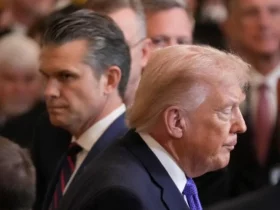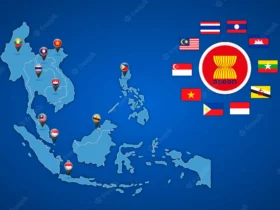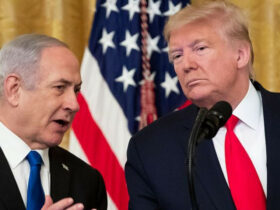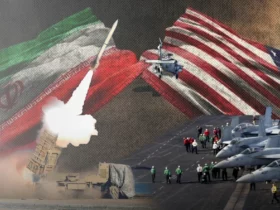The Ukraine crisis was the main item on the European Council’s meeting 30-31st of May, which concluded with some decisions and more debates.
Among the agreed measures are:
– A sixth package of sanctions against Russia will cover crude oil, as well as petroleum products, delivered from Russia into Member States, with a temporary exception for crude oil delivered by pipeline;
– To grant Ukraine new exceptional macro-financial assistance of up to EUR 9 billion in 2022, where a proposal shall be prepared by the Commission;
– The establishment of a “Ukraine reconstruction platform” that shall bring together the Ukrainian government, the European Union and its Member States, the European Investment Bank as well as international partners, financing institutions, organizations, experts and interested parties. The EU wants to support the so-called reconstruction linked to the implementation of reforms and anti-corruption measures consistent with Ukraine’s “European path”.
– Military aid, where on May 24, a financial support of 500 million Euro to Ukraine had been approved by the Council as the fourth tranche.
The main discussions erupted on the proposal of a ban of oil imports from Russia. While a number of countries demanded an end to all oil imports, countries such as Hungary, but also Czech Republic and Slovakia, dependent fully on imports via pipeline, demanded an exception.
And they got what they wanted. Oil imports from Russia via tankers will be stopped by end of the year, while the imports via pipeline will not be subject.
The European press discussed the results of the summit controversially.
German TV comment: agreement shows “cohesion has started to crumble“
Germany’s leading tv Channel ARD titles its comment on the agreement with “better nothing that this one”. It says:
“The half-hearted EU compromise on the oil embargo shows that the cohesion in the union has started to crumble – and the current agreement further deepens the rift. It causes more damage than use. Hungary, Slovakia and the Czech Republic will benefit, while others will have to look for substation of oil imports – delighting Vladimir Putin. The Russian President divides the EU here deeply and relies on the economic differences that will emerge. Disputes and arguments are inevitable. Economists had always warned against a half-hearted oil embargo against Russia, because it would divide Europe and not damage Putin enough. This is true. Better no oil embargo than this one.”
German Der Spiegel: “Summit of disruption”
The weekly Spiegel’s website comments:
“While the Russian military gains territory in Ukraine, shows the EU political weakness. The Union lacks political leadership.”
The author continues:
“The extraordinary summit has sent a fatal message: For the first time since the attack of Russia against the Ukraine lacks the European Union the strength to agree on a common position. Formally have the presidents and prime ministers agreed on an embargo against Russian oil. But in reality has the Hungarian Prime Minister Viktor Orban won. His country may continue importing Russian oil. (…) All other member states have accepted this, because any seemingly agreement is better than no agreement. (…) It would be good if decisions in the EU were only taken by majority. But that will not happen soon.”
Irish Independent: EU has played all its trump card- has now “few moves left to make”
James Crisp comments in the Irish Independent:
“The EU now looks to have played its trump card. The momentum behind the previous five rounds of sanctions has dissipated. EU divisions have been laid bare once again. A precedent has been established, allowing member states to argue for and win exceptions from future measures.
EU sanctions on Russian gas, which would be even more contentious than oil, seem remote in the near future. The oil embargo set out a timetable to phase out most oil imports. A Russian gas ban would have to work the same way to stand any chance of approval.(…) There will be more EU sanctions but they will lack the punch of the big-ticket targets already hit in earlier rounds.”
Belgian La Libre: embargo is a “geostrategic aberration”
Others criticize the attempt of imposing sanctions at all. Writing in the Belgian newspaper La Libre, the businessman Carl-Alexandre Robyn says:
“The European embargo on Russian oil is a geostrategic aberration. Financial disasters, economic cataclysms, political disintegration and popular anger: Europe defends its values by organizing, without realizing it, its collapse! (…) This is economic realpolitik. What we don’t but from the Russians is a bargain for the rest of the world. Other nationalistic and authoritarian economic powers ensure thus safe and cheap supply for themselves, while Putin is enabled to follow his plans without any distraction.
The British Guardian: “withdraw sanctions and stick to military aid”
Simon Jenkins in the British Guardian also criticizes sanctions policy as a failure, and proposes to focus on military aid:
“Nato has been sensibly scrupulous in not escalating the war in Ukraine into a Europe-wide conflict. Sanctions know no such subtlety. Millions of innocent people across Europe and far from its shores will suffer as food and energy prices soar. Supply lines are disrupted. Trade links collapse. The victims are overwhelmingly the poor.
The objective – to compel Russia to withdraw its forces from Ukraine – has patently not been achieved. Military aid has been far more effective in that respect. But the harm done to the rest of Europe and the outside world is now glaring. The EU should stick to helping Ukraine’s war effort and withdraw economic sanctions against Russia. They are self-defeating and senselessly cruel.”

















Leave a Reply